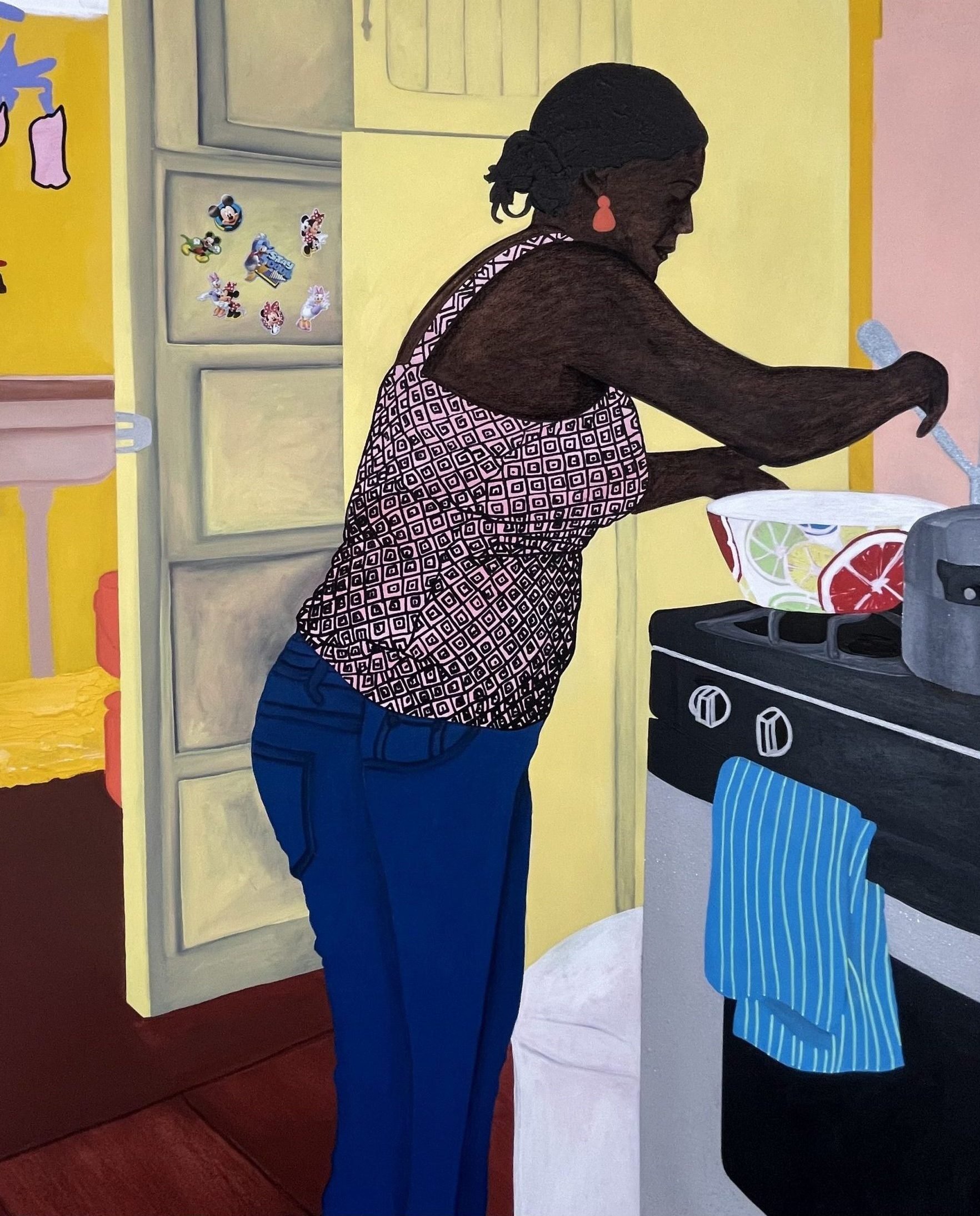Tiffany Alfonseca (b. 1994) is a Bronx- based Dominican-American mixed media artist who creates vibrant and colorful artworks that celebrates Black and Afro-Latinx diasporic culture. Alfonseca continuously taps into her Afro-Dominican roots and leverages it as a conceptual cantilever that provides a dynamic framework for her artistic practice. Moreover, her work aims to visually articulate that the Black and Afro-Latinx diaspora does not exist within a monolith, but that these communities are a cultural cornucopia that is vast, varied, and complex. Alfonseca’s artwork is an intricate combination of beauty, diversity, and multilingualism that exemplifies the strength of the Black and Afro-Latinx diaspora. (from tiffanyalfonseca.com)
As a mixed media artist, Alfonseca combines acrylic paint, charcoal, and glitter for her creations, breathing life into the two-dimensional art form through texture and depth. She draws inspiration from her own background and themes present in her culture, often depicting her loved ones and objects reminiscent of her childhood. By mixing patterns, colors, and mediums, Tiffany manages to brighten those quotidian tasks like bathing or folding laundry. (from LATINA)
Alfonseca presented her first solo exhibition, De Las Manos Que Nos Crearon, in Fall 2021 at The Mistake Room.
Romi 2021
Acrylic paint, charcoal, stickers, and glitter on stretched canvas, 48x60 inches
“In the Dominican Republic it’s normal to have a trabajadora in your home, and Romi happens to be my aunt’s trabajadora for years now. Every summer that I would go back to the Dominican Republic, she would always be there to welcome me with open arms.” - Tiffany Alfonseca
Esta vez sera diferente 2020
Acrylic paint, charcoal, and glitter on stretched canvas // 30×40 inches
”For me this piece is a representation of Black and brown queer love, depicting how being queer can be challenging in the Latinx community and culture. ‘Esta vez sera diferente’ stems from wanting to change the narrative of forbidden queer love and embracing it instead in the Latinx culture.” - Tiffany Alfonseca



